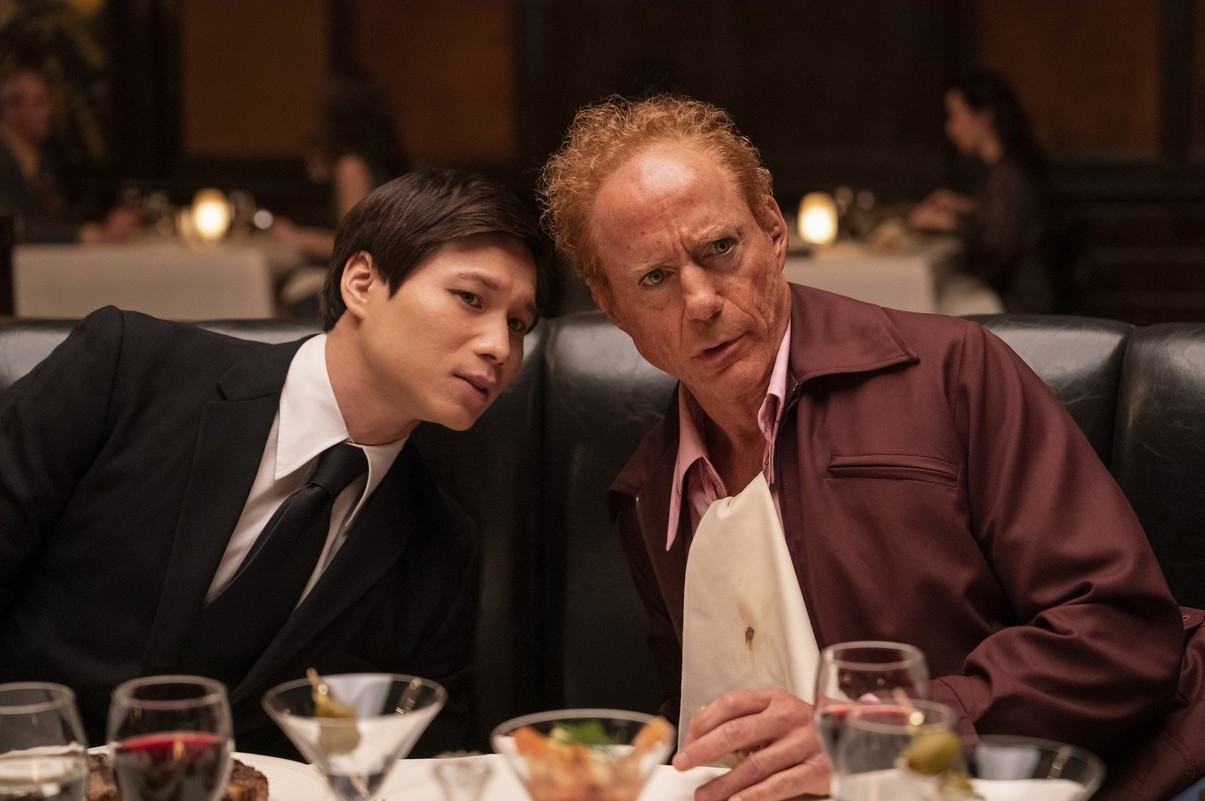How do you adapt a novel like Viet Thanh Nguyen's The Sympathizer? It's a book as dense with narrative, plot, and ideas as it is with the trappings of an action or spy story, which lands it squarely in the "extremely hard to adapt" category of novels. Turns out there might be an easy way to film the unfilmable, and that's to just turn the material over to a master filmmaker like Park Chan-wook and just let him do whatever he wants. It would seem that Park's vision for The Sympathizer, which premiered on HBO and its streaming subsidiary Max last night, is just as willing to disorient its audience and muddy the narrative as the book is.
The Sympathizer follows The Captain, a double agent telling his story in the form of a forced confession after capture. This biracial, bilingual protagonist is somehow working for a General from the South Vietnamese army, the CIA, and the Communists of North Vietnam as the war enters its final stretch. Robert Downey Jr. plays four different characters, including Claude, a CIA agent who takes The Captain under his wing and introduces him to America's torture procedures and grooms him for more work. The Captain maintains that he is at heart working for the Communists and that his loyalties are to his home, but as a man with divided loyalties, it becomes clear that home is a tenuous idea.
That's the basic outline of the story, which the show's first episode gives very little accommodation to. You're dropped into it and before long the show is forcing you to juggle different timelines, characters, and objectives in your head all at once. Park is not the first guy to commit a complicated spy story to film, but I don't know if any have ever taken such glee in doing so. There's a scene around the midpoint of the first episode where The Captain and a fellow spy have a dinner that's key to the story. Where other filmmakers might have bent over backwards to make sure that the audience was paying close attention to this scene, Park turns the whole thing into a big of a joke by staging an elaborate fight scene in the background of their conversation. The whole episode is suffused with Park's typical style and panache—his penchant for whips pans, zooms, and comedic editing tricks work well here—which makes it digestible and entertaining even when you don't know exactly what's going on.
That's exactly the register in which Park, who has repeatedly turned convoluted, violent plotlines into masterpieces, thrives. Right away, The Sympathizer feels indebted to his specific style of filmmaking, which began with Joint Security Area, became recognized for from Oldboy, and reached true transcendence with The Handmaiden. As exciting as it was to watch Park stretch out and do his thing throughout the first episode, it was also bittersweet. Even before it premiered, The Sympathizer was a relic of the recent past. It was developed before the pandemic, back when streamers still wanted big-budget productions made by A-list directors with A-list talent at the helm. The show's production followed a bumpy, expensive path, and given how risk-averse television executives have gotten in recent years, we aren't likely to see many more shows like this one come to fruition.
That shouldn't prevent us from enjoying the show while we have it, though. Park's skill and style is not something you often get to encounter in a television series, and as the first episode culminated in a gripping action sequence, I found myself hungry for everything else he still has to show us, even if it might take me awhile to fully understand it all.






